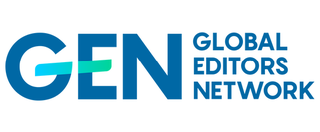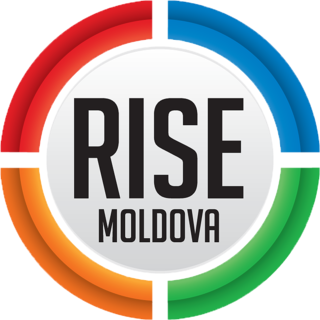Transparency International e.V. (TI) is a German registered association founded in 1993 by former employees of the World Bank. Based in Berlin, its nonprofit and non-governmental purpose is to take action to combat global corruption with civil societal anti-corruption measures and to prevent criminal activities arising from corruption. Its most notable publications include the Global Corruption Barometer and the Corruption Perceptions Index. Transparency International serves as an umbrella organization. From 1993 till today its members have grown from a few individuals to more than 100 national chapters which engage in fighting perceived corruption in their home countries. TI is a member of G20 Think Tanks, UNESCO Consultative Status, United Nations Global Compact, Sustainable Development Solutions Network and shares the goals of peace, justice, strong institutions and partnerships of the United Nations Sustainable Development Group (UNSDG). TI is a social partner of Global Alliance in Management Education. TI confirmed the dis-accreditation of the national chapter of United States of America in 2017.

Reporters Without Borders is an international non-profit and non-governmental organization with the stated aim of safeguarding the right to freedom of information. It describes its advocacy as founded on the belief that everyone requires access to the news and information, in line with Article 19 of the Universal Declaration of Human Rights that recognizes the right to receive and share information regardless of frontiers, along with other international rights charters. RSF has consultative status at the United Nations, UNESCO, the Council of Europe, and the International Organisation of the Francophonie.
Global Voices is an international community of writers, bloggers and digital activists that aim to translate and report on what is being said in citizen media worldwide. It is a non-profit project started at the Berkman Center for Internet and Society at Harvard Law School that grew out of an international bloggers' meeting held in December 2004. The organization was founded by Ethan Zuckerman and Rebecca MacKinnon. In 2008, it became an independent non-profit incorporated in Amsterdam, Netherlands.

Collaborative journalism is a growing practice in the field of journalism. One definition is "a cooperative arrangement between two or more news and information organizations, which aims to supplement each organization’s resources and maximize the impact of the content produced." It is practiced by both professional and amateur reporters. It is not to be confused with citizen journalism.
Media development involves capacity building for institutions or individuals related to freedom of expression, pluralism and diversity of media, as well as transparency of media ownership. Media development plays a role in democracy and effective democratic discourse through supporting free and independent media.

The Organized Crime and Corruption Reporting Project (OCCRP), founded in 2006, is a consortium of investigative centers, media and journalists operating in Eastern Europe, the Caucasus, Central Asia and Central America. OCCRP is an investigative reporting organization that specializes in organized crime and corruption. It publishes its stories through local media and in English and Russian through its website. In 2017, NGO Advisor ranked it 69th in the world in their annual list of the 500 best non-governmental organizations (NGO).

The Global Editors Network (GEN) was an international association of over 6,000 editors-in-chief and media executives with the mission of fostering digital innovation in newsrooms all over the world. GEN had three main programmes: Editors Lab, the Data Journalism Awards, Startups for News, as well as an upcoming hub for the international data journalism community. The organisation’s flagship event, the GEN Summit, gathered over 830 participants from 70 countries. The GEN newsletter was read weekly by more than 13,800 subscribers. It is a non-profit, non-governmental association.
Freedom of the Press Foundation (FPF) is a non-profit organization founded in 2012 to fund and support free speech and freedom of the press. The organization originally managed crowd-funding campaigns for independent journalistic organizations, but now pursues technical projects to support journalists' digital security and conducts legal advocacy for journalists.
The Institute for Nonprofit News (INN) is a non-profit consortium of journalism organizations. The organization promotes nonprofit investigative and public service journalism through its association of member entities.

RISE Moldova is an independent, non-governmental and nonprofit organization consisting of investigative journalists, programmers and activists from Moldova and Romania. Investigations made by RISE Moldova journalists were shortlisted for the European Press Prize for two years in a row.

Media freedom in the European Union is a fundamental right that applies to all member states of the European Union and its citizens, as defined in the EU Charter of Fundamental Rights as well as the European Convention on Human Rights. Within the EU enlargement process, guaranteeing media freedom is named a "key indicator of a country's readiness to become part of the EU".

Journalism++ (J++) is a network of private service companies specializing in datajournalism. Founded in 2011, it has chapters in Paris, Berlin, Stockholm, Porto, Amsterdam and Cologne.
The Global Investigative Journalism Network (GIJN) is "an international association of nonprofit organizations that support, promote and produce investigative journalism." The association is headquartered in the United States, and its membership is open to "nonprofits, NGOs, and educational organizations" that are active in investigative reporting and data journalism. As of February 2021, GIJN had 203 member organizations in 76 countries.
The European Investigative Collaborations (EIC) network is a European collaborative hybrid project of transnational investigative journalism. EIC was established in the fall of 2015 with founding members, including Der Spiegel, El Mundo, Mediapart, the Romanian Centre for Investigative Journalism (CRJI), and Le Soir, and launched in the winter of 2016. On March 18, 2016, after three months research, they published the results of their first joint investigation spurred on by the 2015 terrorist attacks in Paris, in which they revealed how in spite of security risk warnings, "the EU’s freedom of goods policy facilitated the sale of weapons leading to [the 2015] terror attacks in Paris." In 2017 working with "over 60 journalists in 14 countries", the EIC published the Football Leaks—the "largest leak in sports history".

The Association for Democracy Assistance and Human Rights (DEMAS) is a Czech organization founded in 2008 which is an amalgamation of 11 NGOs and 5 observer status organizations. DEMAS, and the organizations within focus on supporting democracy and upholding human and civil rights within the Czech republic and internationally. They state their mission as being "Ready to serve the cause of democracy, human rights and civil society whenever and wherever the need arises." Funding for DEMAS initially came mostly from the Czech Republic government, and through programs meant to offer funding for NGOs, such as the National Endowment for Democracy (NED). NED funding is given out by the Czech Ministry of Foreign Affairs. DEMAS is also funded by the European Union, European Commission, private donors, and other governmental grants and funds.

Media independence is the absence of external control and influence on an institution or individual working in the media. It is a measure of one's capacity to "make decisions and act according to its own logic," and distinguishes independent media from state media.
The Google News Lab is a global team at Google whose mission is to "collaborate with journalists and entrepreneurs to help build the future of media". Launched in 2015, the News Lab works with news organizations to help drive innovation, address industry challenges, and provide training and access to emerging technologies for reporting and storytelling. Some industry commentators have labelled it as an attempt to build goodwill among journalists, in contrast with rival tech giants such as Facebook.
The Trust Project is a complex international consortium involving approximately 120 news organizations working towards greater transparency and accountability in the global news industry, including The Economist, The Globe and Mail, the Independent Journal Review, Mic, Italy's La Repubblica, Il Sole 24 ORE and La Stampa. The Project was started in 2014 by Sally Lehrman, a journalist and former director of Santa Clara University's journalism ethics program at the Markkula Center for Applied Ethics and launched in November 2017. Richard Gingras, head of Google News is a co-founder. The Project is funded by Craigslist founder Craig Newmark’s Philanthropic Fund, Google, the John S. and James L. Knight Foundation, the Democracy Fund, the Markkula Foundation and Facebook.

OKO.press is a Polish investigative journalism website created on 15 June 2016. The name is a word play on oko, Polish for eye, and an abbreviation for "Ośrodek Kontroli Obywatelskiej".
Forbidden Stories is a non-profit organization with the mission "to continue and publish the work of other journalists facing threats, prison, or murder." To achieve this, it allows journalists to send their work to Forbidden Stories, so other journalists have access to the material in case the original investigator is not able to follow it anymore. It partners with organizations such as Reporters Without Borders and Freedom of the Press Foundation.









